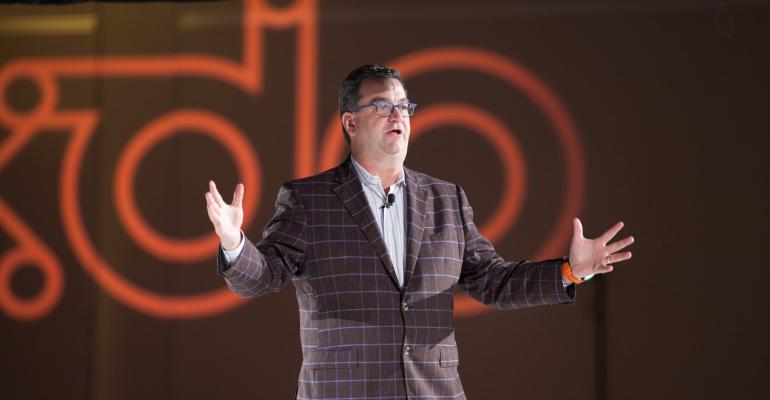“You see the word ‘experience’ everywhere now,” said James Gilmore, management advisor at Strategic Horizons and author of numerous books, including The Experience Economy. “Even when I was in the shower of a hotel recently, I picked up the shampoo bottle and saw that it said ‘Enjoy your shampooing experience’ on the label.” That in-name-only experience is decidedly not what participants were shooting for during a brainstorming session with Gilmore on making meetings more experiential during the American Society of Association Executives’ Xperience Design Project earlier this year.
“Associations have always been in the experience business,” he added, “but it’s been a side mindset, a what, not a how to.” One place to jumpstart that how-to mindset is to understand the difference between offering a service, which is measured by the time it saves, and an experience, which is measured as time well spent. “Services are the what, the action to be performed, delivered on demand.”
“Time is the currency of experiences,” he said.
The Four E Model
Gilmore used the four experience realms—what he called the “Four E Model”—from The Experience Economy to help participants understand what makes some experiences more engaging and compelling than others. These four realms—entertainment, educational, esthetic, and escapist—were laid out on a grid in the XDP workbook each participant was given at the start of XDP. The vertical axis ran from absorb to immerse, while the horizontal ran from passive to active.
• Entertainment, which is passive absorption, can be a component of an event experience, but it does not on its own make for a compelling meeting experience, he said.
• Educational experiences are absorbing and active—when they’re done right. In the usual classroom (and ballroom), what’s really happening is more passive absorption. “Learning happens when participants apply what they hear,” he said. This is why the flipped classroom model, where learners do the reading ahead of time and spend their time together applying what they learned to projects, is taking off.
• Esthetic experiences are passively immersive—the value is in just being there, Gilmore said. This can apply to meetings, but all too often does not, because the esthetic aspect can get short shrift. One example he gave was seating in meeting rooms, which tends to be designed to make chairs easy to stack, not for comfort.
• Escapist experiences are actively immersive. “They transport participants from one sense of reality to another. This is inherent to events,” he said.
6 Ideas to Make Events More “Learnful”
Gilmore challenged participants to concentrate on how they could shape an experience to include more of the four Es. Some of the ideas he shared were:
• In the registration area, why organize the lines based on attendees’ last name? Why not organize them by state, or region, or job title, or main challenges they face?
• Also for the registration experience: Hire a comedian to work the line.
• Add color to make breakouts more esthetic. One easy way to do this is through lighting.
• To make invitations more educational, be provocative. Ask a question or make a statement that they can debate.
• Perk up general sessions by giving people choices. For example, ask each speaker to do a pitch on why people should want to hear his or her presentation, then have people vote on who they want to hear.
• For panels, give each panelist a set amount of time to speak, then vote one off, and repeat.
“We’re increasingly adding noise to the world instead of wisdom. That should be a call to action for everyone in this room,” he said. "We need to sift through the noise to find meaningful data, then turn the data into information that leads to knowledge and, ultimately, wisdom."





